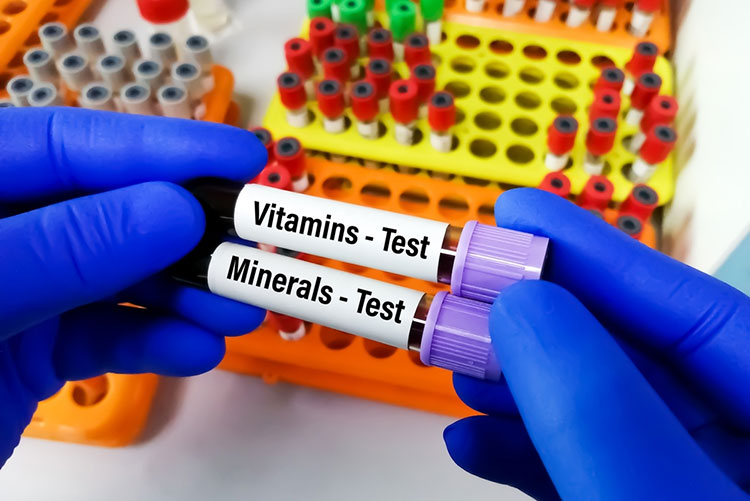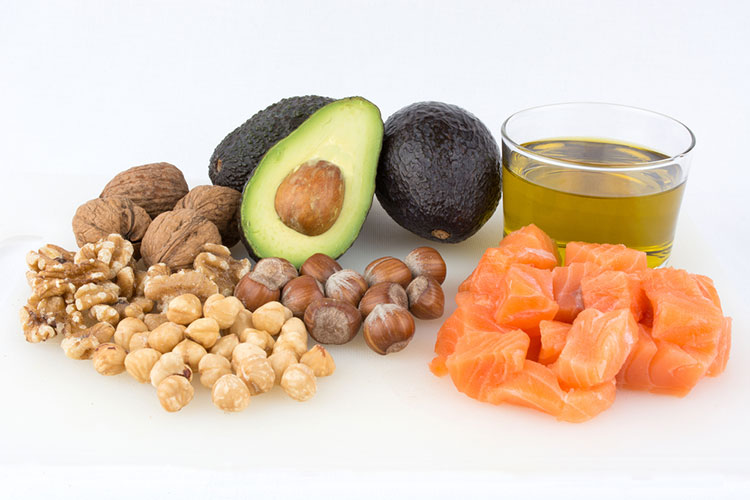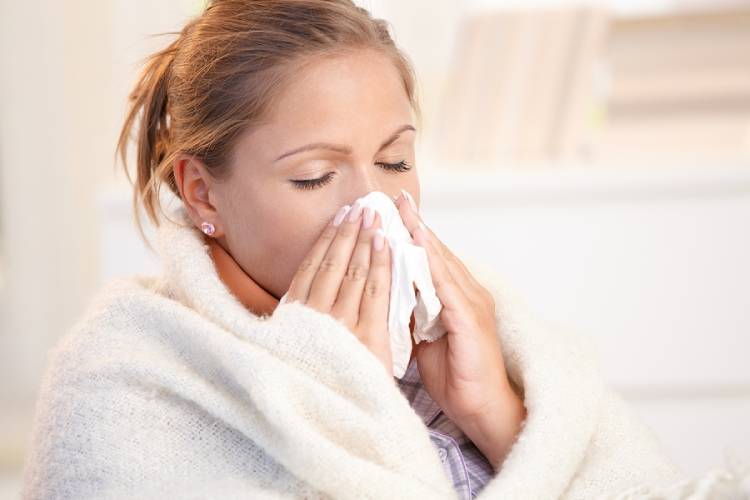The cause of keto complications is that the ketogenic diet severely limits carbohydrates while increasing the amount of fat a person consumes.
Many people who plan to go on the keto diet and lose weight quickly ask what are the disadvantages of the keto diet and whether it can be overcome or not.
We must say that among the symptoms of this diet, a common short-term side effect of the keto diet is the keto flu, which includes symptoms such as fatigue, nausea, and headache, and it resolves after a while.
Other side effects of the ketogenic diet include the lack of certain nutrients and heart problems, which generally occur due to the lack of proper adherence to this diet.
In this article, you will be fully acquainted with the complications of the keto diet and how to deal with it, so that you can take this fast and healthy weight loss diet without any problems:
What are the side effects of the ketogenic diet?
People who follow a ketogenic diet usually suffer from three conditions; The first one is normal, and the second and third are abnormal:
1-Keto flu;
2- lack of vitamins;
3- Cardiovascular problems;
Knowing these problems and following the daily food plan correctly, can control or prevent them from occurring:

The Keto Flu
The keto diet is a drastic change for many people. According to America’s Keto Dietary Guidelines, more than half of the US population consume at least the recommended amount of grains each day, and about 70 percent consume more than the recommended amount of processed sugar per day.
As a result, suddenly switching to a low-carb diet may cause side effects for some people.
While transitioning into ketosis, people may experience the “keto flu.” If people experience the following symptoms while transitioning to the keto diet, it means that they have gone the right way and followed the keto diet correctly.
Common keto flu symptoms and keto diet side effects include:
- Fatigue
- Nausea
- Stamina problems when exercising
- Headache
- Constipation
- Runny nose
For most people, keto flu is a short-term side effect that should resolve within a few days to a few weeks. Drinking enough fluids and electrolytes will help reduce symptoms.
If you didn’t get better, you should talk to your doctor about getting more nutritious foods.
Deficiencies in Certain Nutrients
A person on the keto diet should control his/her carbohydrate intake from all potential sources, including fruits, vegetables, and whole grains.
As a result, they may need to cut back on foods that previously provided them with beneficial nutrients.
Vitamin and mineral deficiencies can cause a variety of symptoms that range from mild to severe. A person following a keto diet needs to make sure that they are not missing out on any nutrients as a result of changing their diet.

Heart disease
It is rumor these days that the keto diet causes heart problems. But this is not true. This problem only occurs if a person consumes unhealthy fats, regardless of the type of fat consumed, which naturally brings long-term health risks such as cardiovascular problems.
What should be followed in the keto diet is the consumption of healthy fats and protein.
Consuming healthy fats in the prescribed time period in the keto diet not only does not cause any complications, but is also beneficial for health and improving many diseases.
What are the causes of keto complications?
Keto is a popular low-carb weight loss program. It also helps maintaining muscles. Ketosis is a process that occurs when your body does not have enough carbohydrates to burn for energy.
Instead, it burns fat and makes things called ketones that it can use for fuel. In addition to helping you burn fat, keto can make you feel less hungry.
In the first week of this diet, the body enters a state of ketosis and experiences flu-like symptoms.
That is, if you have followed this diet correctly, you should naturally enter the phase of ketosis, which means changing the body’s fuel from sugar and carbohydrates to fat.
For this reason, all the disadvantages of the ketogenic diet are not unnatural and can be controlled so that the person reaches the desired weight.
Another important point is that this diet is popular in many countries, especially developed countries, whose diets contain less rice and bread, but in countries where bread and rice consumption is part of their eating habits, it is possible to change body fuel from sugar to fat.
It is a little difficult at the beginning. By continuing the diet and following its principles, you can change your lifestyle in the long term so that your taste will shift from unhealthy foods to healthy foods.

Is ketogenic diet harmful?
No Ketogenic diet is one of the best and healthy diets in the world for rapid weight loss. The keto diet is an effective way for some people to manage their weight.
This eating pattern also improves some health conditions. For example, diet may help reduce the frequency of seizures in children with epilepsy, as well as control insulin levels and improve insulin sensitivity for people with diabetes.
However, people with other medical conditions should not follow the keto diet or should discuss it with their doctor first.
These include people living with the following conditions:
- Pancreatic disease
- Hypothyroidism and thyroid problems
- Liver problems
- Gallbladder removal
A history of eating disorders let it be determined whether this diet is suitable for him or not.
Who should not follow the keto diet?
A very low-carb, high-fat diet not only helps with weight loss, but is also effective in managing the symptoms of diabetes and high cholesterol.
But having a high-fat diet for a long time has also been associated with various side effects.
It is said that consuming too much fat for long periods can put susceptible people at risk of developing kidney stones and other diseases.
According to experts, people with the following problems or diseases should not follow the keto diet:
- pregnant women,
- vegans,
- digestive disorders,
- kidney problems,
- eating disorders,
- pancreatic disease,
- liver disease,
- thyroid disease,
- kidney disease,
- gall bladder disease,
- kidney stones,
- people who have had gallbladder surgery.

7 Ways to Cope with the Cons of the Keto Diet
Take supplements when needed: Make sure you’re getting enough vitamins and minerals through food or supplements.
Consume healthy fats: Consume more healthy fats such as olive oil, fatty fish and avocados than saturated fats.
Eat healthy foods: Avoid processed foods and fast food high in saturated fat
Eat enough salt: You can avoid many side effects by adding enough water and salt to replace what you lose when you start a keto or low-carb diet. Avoid side effects or at least minimize them. For example, increase your sodium intake by drinking a glass of water with half a teaspoon of salt.
Plenty of water: Constipation is another possible side effect, especially when you first start a low-carb diet, as your digestive system may need time to adjust.
Drink plenty of fluids: One of the common causes of constipation in low carb consumption may be dehydration. This causes the body to absorb more water from the colon, so the contents of the colon become drier and harder, leading to constipation.
Eat spinach and flax: Eating a lot of non-starchy vegetables compensates for the lack of fiber in the body. Another option for adding fiber to a diet that is almost carbohydrate-free is bran (mixed with plenty of water) or ground flaxseed.
Consuming oral hygiene: On a low-carb diet, some people experience bad breath. This is a sign that your body is burning more fat stores and turning that fat into ketones.
Not everyone who uses a low-carb ketogenic diet experiences this problem, and for most people who do, it’s a temporary side effect that often goes away after a week. Drink enough fluids to flush it out. Brush your teeth and be sure to use dental floss.
If the goal of following this diet is to lose weight, after reaching a suitable weight, you can slowly introduce some carbohydrates into your diet and reach the state of weight stabilization.
What foods are allowed in the ketogenic diet?
The ketogenic diet is a high-fat, low-carbohydrate, moderate-protein diet. There are many healthy foods that can be eaten on a keto diet, but it is important to get enough fiber. Foods allowed in the keto diet are mainly:
- fish and seafood,
- red meat,
- chicken,
- non-starchy vegetables,
- bell pepper,
- broccoli,
- zucchini,
- avocado,
- berries,
- nuts and seeds,
- eggs,
- high-fat dairy products,
- olive oil,
- dark chocolate.

Keto complications FAQ
What are the side effects of the ketogenic diet?
People who follow a ketogenic diet usually experience multiple episodes; The first is normal, and the second and third are abnormal: ketosis, vitamin deficiency, and cardiovascular problems. Getting the keto flu is normal and will go away after a while, but nutrient deficiencies and heart disease are signs of not following the keto diet properly.
What are the causes of keto complications?
In the first week of this diet, the body enters a state of ketosis and experiences flu-like symptoms. That is, if you have followed this diet correctly, you should naturally enter the phase of ketosis, which means changing the body’s fuel from sugar and carbohydrates to fat.
What is the way to deal with the disadvantages of the keto diet?
Drink enough water and consume salt. Also, maintaining oral and dental hygiene and consuming foods with fiber but low in carbohydrates such as flax seeds and asparagus are effective in eliminating and reducing the side effects of the keto diet.
Bottom line
Side effects of keto include the keto flu, which may cause fatigue, nausea, and dizziness, among other symptoms.
Keto flu usually resolves within a few days or weeks. In the long term, the keto diet may increase a person’s risk of developing vitamin or mineral deficiencies if they don’t get enough nutrients.
People with certain chronic diseases should not follow the keto diet. A person should talk to a doctor or nutritionist before restricting their diet significantly.
The result is that the most important side effects of the ketogenic diet are due to the failure to properly follow the dietary instructions, which can be eliminated by following them properly.
In addition, the keto flu and the ketosis phase at the beginning of this diet are completely normal and a sign of the body’s readiness to follow a healthy keto diet.

Leave a Reply